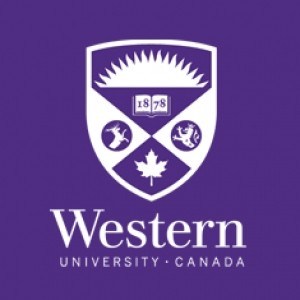Photos of university / #westernuniversity
The Bachelor of Science in Scientific Computing at Western University offers a comprehensive interdisciplinary program designed to equip students with the essential skills in mathematics, computer science, and scientific modeling necessary to address complex real-world problems. This program integrates theoretical foundations with practical applications, emphasizing computational techniques, algorithm development, and data analysis across various scientific disciplines such as physics, biology, chemistry, and engineering. Students enrolled in this program will engage in rigorous coursework that covers programming languages, numerical methods, data structures, and software development, alongside foundational courses in calculus, linear algebra, differential equations, and physics. The curriculum emphasizes experiential learning through laboratory exercises, research projects, and internships, providing students with hands-on experience in computational modeling, simulation, and data visualization. Graduates of the Scientific Computing program are prepared for careers in research institutions, industry, and academia, where they can apply computational methods to solve complex scientific problems, develop innovative software solutions, and contribute to advancements in technology and data-driven decision-making. The program also offers opportunities for specialization in areas such as computational physics, bioinformatics, environmental modeling, and artificial intelligence. Dedicated faculty with expertise across multiple scientific domains support students through personalized mentorship and research collaboration. The program aims to foster critical thinking, problem-solving skills, and a strong foundation in computational sciences, enabling graduates to excel in a rapidly evolving digital landscape and to pursue advanced study or professional certification. With access to state-of-the-art laboratories and research facilities, students are encouraged to participate in cutting-edge projects and develop innovative solutions that address pressing scientific and societal challenges. Overall, the Bachelor of Science in Scientific Computing at Western University prepares students for a dynamic career at the intersection of science and technology, providing them the tools and knowledge to be leaders in the field of computational science.
- Scientific computing seminars
- Thesis
Core courses
- Scientific Computing 9502 a/b (Solutions of PDEs and SDEs on Parallel Computers)
- Applied Mathematics 9620 (Finite Element Methods)
- Applied Mathematics 9566 (Numerical Solutions of Partial Differential Equations)
- Astronomy 9605 a/b (Computational Astrophysics)
- Statistics Science SS9864a (Statistical Computing)
- Chemistry CHEM9444a (Computer Simulations in Chemistry)
Requirements
- Students interested in this program should
- apply first directly to the department of their main discipline. For example, students with primary interest in graduate work in chemistry should apply for admission to the Department of Chemistry andstate their interest in the GPSC.
- The home department will then share the application with the Director of the GPSC and a joint decision will be made concerning the applicant's admissability.
- Current enrolment in a participating graduate program at Western University.
- Permission of home department supervisor to participate in the Collaborative Program.
- Supervisor must be an associated faculty member or be willing to become associated with the Program.
- TOEFL Internet 86/120 (no individual score below 20), TOEFL Computer 213, TOEFL Paper 550
- IELTS 6.5/9 overall with no individual score less than 6.0 for consideration of direct entry.
The Scientific Computing program at Western University offers a variety of financial aid options to support students throughout their studies. Prospective students are encouraged to explore entrance scholarships, which are awarded based on academic achievement, leadership qualities, and extracurricular involvement. These scholarships are renewable annually, contingent upon maintaining specified academic standards. In addition to entrance awards, current students can access a range of bursaries designed to assist those demonstrating financial need, thereby ensuring access to quality education regardless of economic background. Western University also provides work-study opportunities, allowing students to earn income through on-campus employment that complements their academic schedules and enhances their professional experience.
Students enrolled in the Scientific Computing program are eligible to apply for graduate assistantships, which offer stipends in exchange for research or teaching responsibilities. These assistantships serve as both financial support and valuable academic experience, often awarded based on merit and academic performance. Furthermore, the university participates in government loan programs, such as the Canada Student Loan Program and Ontario Student Assistance Program (OSAP), providing low-interest loans to eligible students to cover tuition fees and living expenses.
International students pursuing Scientific Computing may have access to specific scholarships and grants tailored to promote diversity and academic excellence. Western University also encourages students to seek external funding sources, including private scholarships, foundations, and industry-sponsored awards that recognize outstanding achievement in science and technology fields. The university’s financial aid office offers guidance and resources to help students navigate the available options, complete application processes, and maximize their financial aid packages.
Overall, Western University’s comprehensive financial support system aims to reduce barriers to education in Scientific Computing, enabling talented students from diverse backgrounds to focus on their academic and research pursuits without undue financial stress.
The Bachelor of Science in Scientific Computing at Western University is an interdisciplinary program designed to equip students with essential skills in mathematics, computer science, and scientific modeling. This program aims to prepare graduates for careers in research, industry, and academia where computational methods are pivotal for solving complex scientific problems. The curriculum emphasizes foundational courses in calculus, linear algebra, and programming, supplemented by specialized classes in numerical analysis, data structures, algorithms, and scientific simulation techniques. Students also have opportunities to develop practical skills through laboratory work, research projects, and internships. The program fosters critical thinking, problem-solving, and analytical skills necessary for innovative scientific computation. Students learn to implement algorithms, analyze large datasets, and develop models that can be applied across various scientific disciplines, including physics, biology, engineering, and environmental science. The program is designed to be flexible, allowing students to tailor their coursework to specific areas of interest while gaining a broad understanding of computational science. Graduates from the Scientific Computing program at Western University can pursue careers in software development, data analysis, scientific research, and consulting, or continue their education through graduate studies. The program benefits from Western’s strong emphasis on research and collaboration, providing students with exposure to cutting-edge technologies and methodologies. Overall, the Bachelor of Science in Scientific Computing offers a comprehensive education that combines theoretical knowledge with practical application, preparing students to meet the demands of a data-driven, technologically advanced world. The integration of computational techniques with scientific principles makes this program highly relevant for addressing contemporary challenges in various scientific fields.




